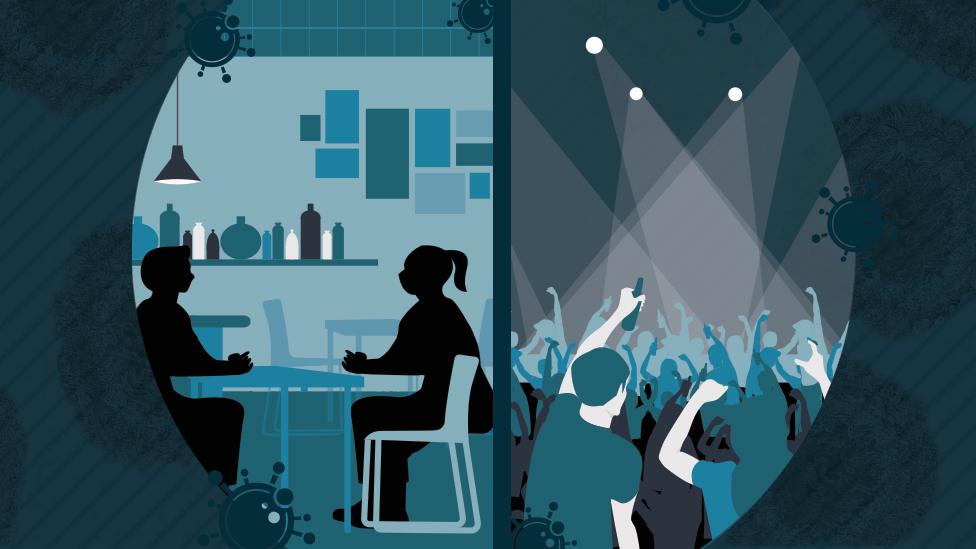Covid: Brains to close more than 100 pubs due to Wales' alcohol rules
- Published
- comments
Last orders for 100 Brains pubs in Wales - as they close for Covid on Friday
The boss of the biggest Welsh-owned brewery has called new alcohol rules "closure by stealth" and announced more than 100 managed pubs will be closed from Friday.
Brains said the majority of its 1,500 staff will be put on furlough on 80% of their wages.
Chief executive Alistair Darby said the earlier firebreak cost it £1.6m.
Welsh pubs and restaurants will be banned from selling alcohol from Friday and must close after 18:00 GMT.
The Welsh Government says the rules are needed to tackle a rise in cases.
Opposition leaders challenged the decision in the Welsh Parliament on Tuesday.
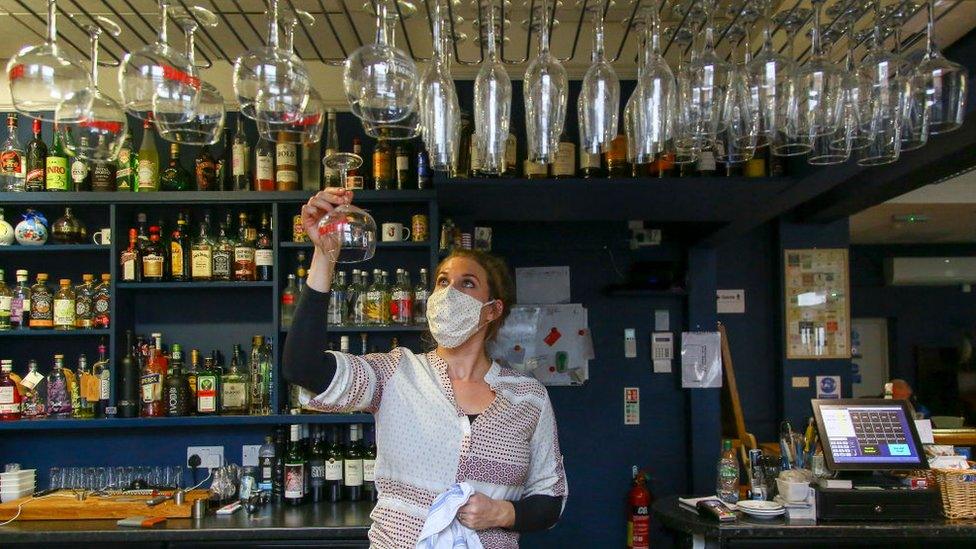
Pubs will have to close to customers at 18:00, and will not be able to serve alcohol on the premises
The Welsh Conservatives' Paul Davies questioned how pubs could be expected to survive on "pop and pork scratchings".
Adam Price, Plaid Cymru leader, warned public trust was "being eroded" due to a "lack of logic" behind the government's approach.
First Minister Mark Drakeford said the step - which still allows for takeaway alcohol to be sold - had been taken in the "inescapable context" of the spread of coronavirus.
Later he came under pressure from two Labour backbenchers - with Blaenau Gwent's Alun Davies demanding to see the evidence underpinning the decision.
He told the Senedd that despite the efforts that had been made by businesses "we continue to face a public health emergency here in Wales".
There were "no easy decisions", he said, telling Mr Price it "wasn't possible to have a logic that is watertight on every single occasion and on every single aspect".
The evidence for the decision was the same, he said, as that which had led governments across the UK and across Europe to take similar actions.
Pubs are closed in tier three areas in England, while in level three areas in Scotland they are not able to serve alcohol.
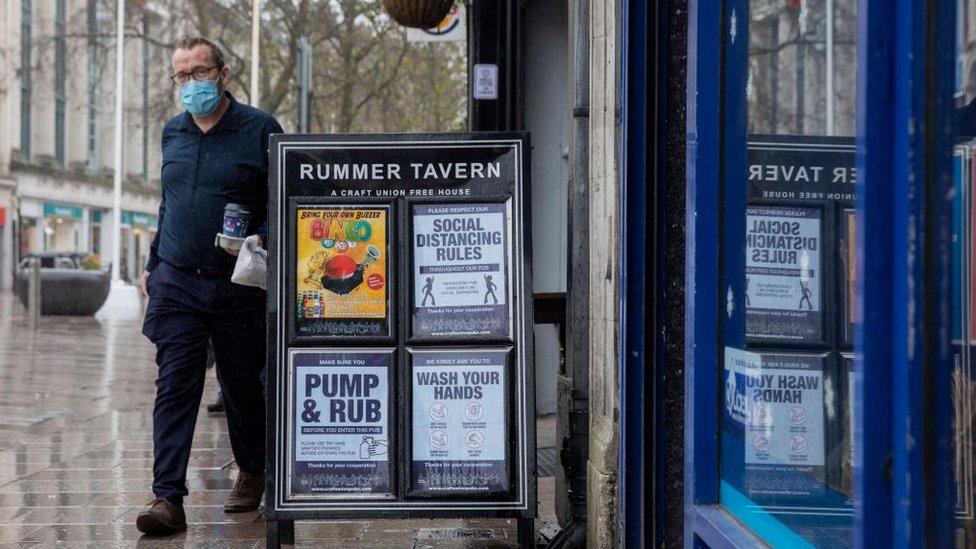
Pubs will not be able to serve alcohol on the premises from Friday
Brains directly employs around 1,500 people and has 300 tenants as well as suppliers and regular trades people.
Mr Darby said the new rules for pubs were "insulting" and "a huge slap in the face" for the sector.
He called on politicians to "stop changing their mind" on what is required, and said the move suggests pubs and restaurants are areas of "high transmission".
"It's hugely frustrating and a bit insulting. It says people are not making the effort being asked of them," he said.
Mr Darby said the decision will be felt by many thousands of other workers who supply the industry, such as electricians, plumbers and caterers.
Mr Drakeford has said there could be between 1,000 and 1,700 preventable deaths without action taken this winter.
But the Brains boss said: "The sector has done more than its fair share to ensure those potential deaths are avoided.
"And at the end of this, we will be asking, if lives aren't saved, what the answer will be?"
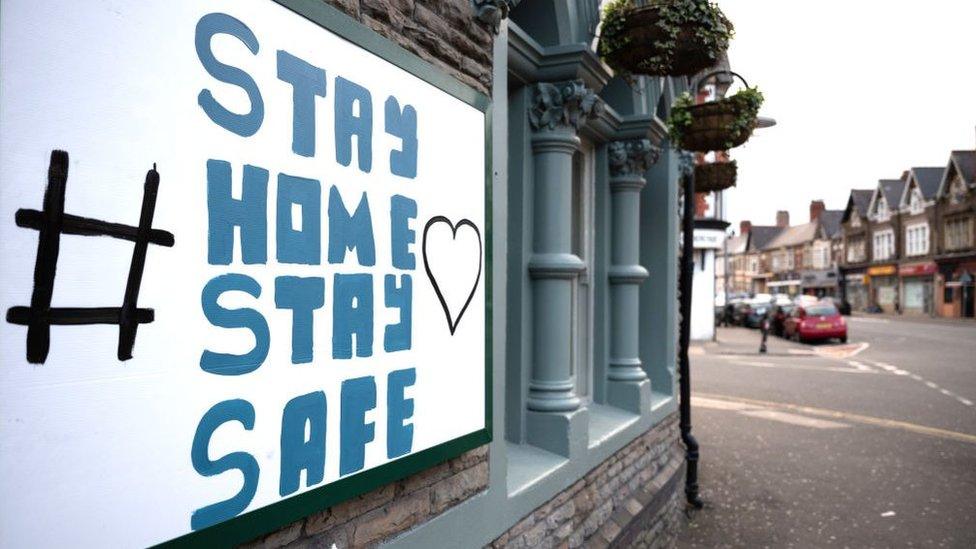
Pubs had to close during the initial lockdown in the Spring
Adam Price called for a "sensible compromise", allowing hospitality to serve alcohol until 19:00, with a ban on alcohol sales at off-licences and supermarkets after that time to "to discourage people from going into each other's homes".
Paul Davies described the decision as "catastrophic" and "devastating" for businesses.
"Pubs and restaurants in areas where transmission rates are low will rightly feel upset that their businesses is being put at risk, through no fault of their own," he added.
Both called for Mr Drakeford to reveal the scientific evidence underpinning the decision.
What is the scientific evidence for the new rules?
"There is no absence of evidence," Mr Drakeford told the Senedd.
Later, he added that similar restrictions have been introduced in "all parts of the UK and across the world".
"The consumption of alcohol has been identified by health officials and policy makers internationally as increasing the risk of transmission, as social distancing can break down as people have an altered perception of risk," he said.
The first minister added that data from contact tracing had regularly highlighted hospitality "as venues where contacts of infectious individuals are identified".
Firebreak 'lifted too quickly'
UK government cabinet minister Michael Gove said restrictions had been lifted too quickly after Wales' 17-day firebreak.
He told BBC Breakfast he sympathised with the Welsh Government, but added: "As a result of doing that, the virus once more got out of control, so they've had to slam the brakes on again.
"The example of Wales shows what can happen if you lift the restrictions in too blanket a way too soon."
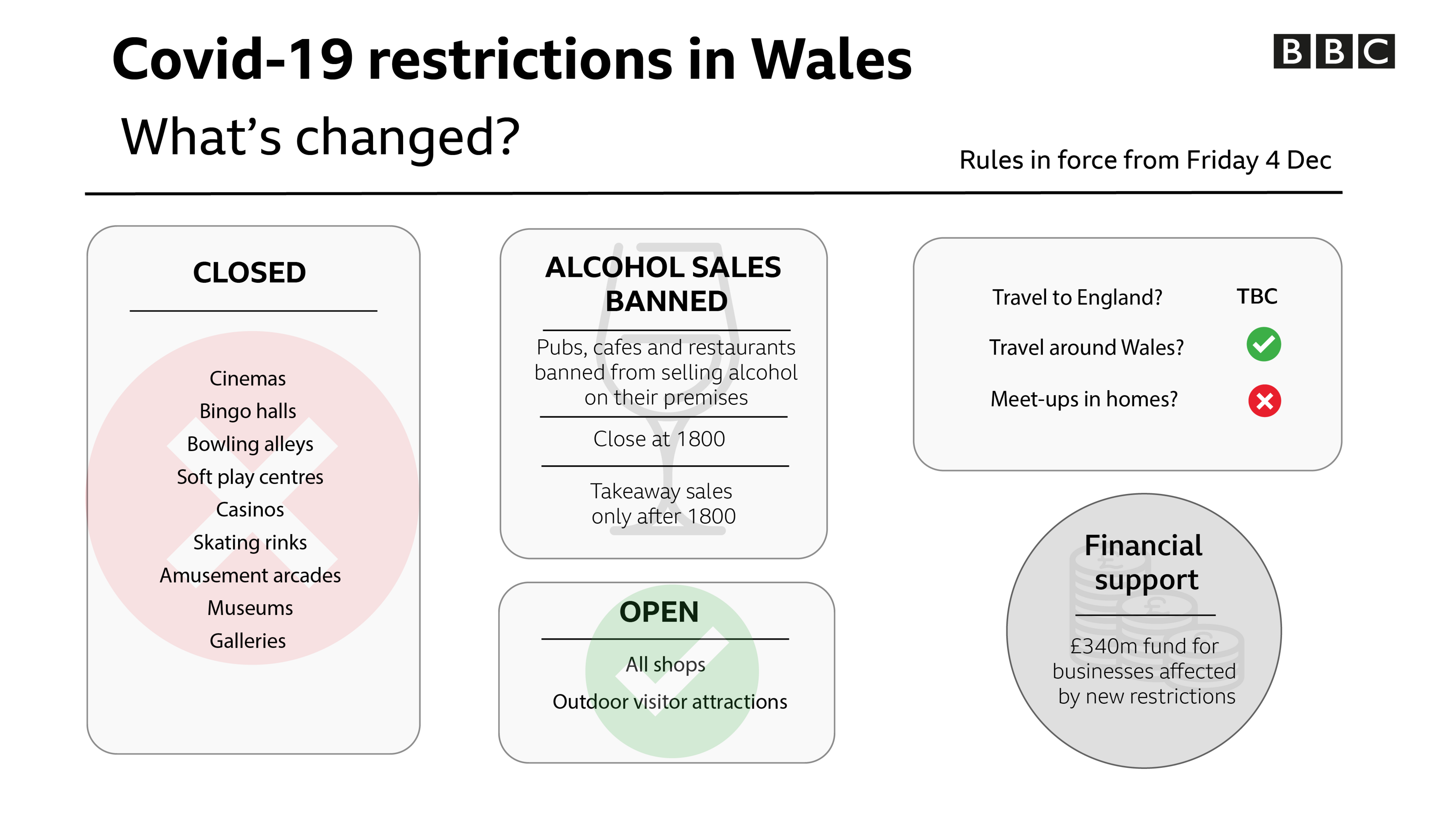
The first minister promised firms hit by the restrictions they would be offered £340m in support which he claimed was "the most generous package" anywhere in the UK.
However Mr Darby said the support "would not touch the sides".
As an £80m turnover business, Brains spent £500,000 in personal protective equipment (PPE) and digital technology for pre-booking, while it has "surrendered" huge capacity and lost summer trading, Mr Darby added.
He said: "My message to politicians is 'you have to stop changing your mind on what is required in the sector'.
"We have done more than our fair share to ensure potential deaths are avoided at the end of this."
'Christmas has been cancelled'
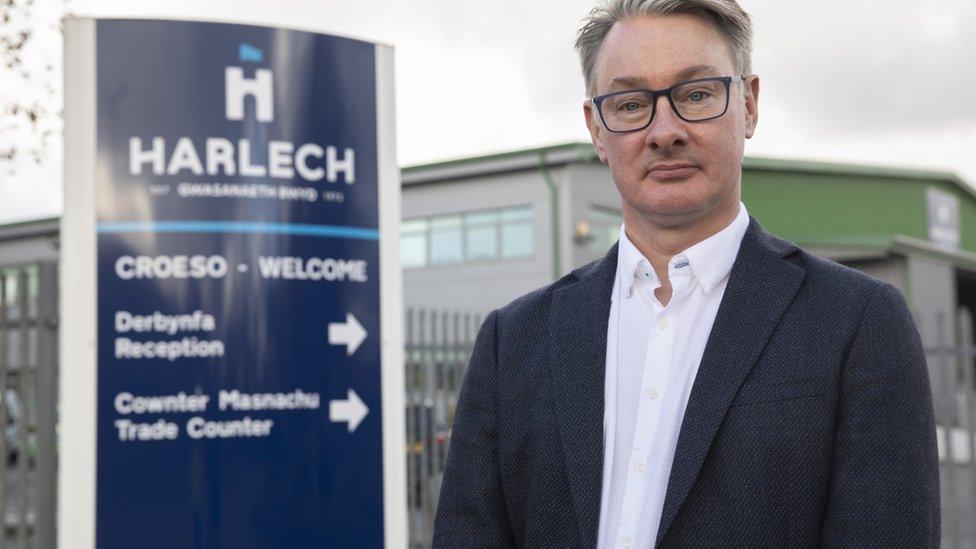
David Cattrall of Harlech Foodservice said businesses need an exit plan and support
David Cattrall, managing director of Harlech Foodservice, warned that many hospitality businesses would not survive the latest round of restrictions.
"There is a palpable sense of frustration, bewilderment and anger at the restrictions being placed upon the hospitality sector in north and mid Wales," he said.
"The rate of the virus is lower here than in south Wales so it defies logic that we are being subjected to this damaging one-size-fits-all policy.
"The run-up to Christmas is when the sector makes enough money to keep them going through the quiet months of January and February but it's clear now that Christmas has been cancelled as far as the hospitality sector is concerned."
Businesses need an exit plan and reassurance they will be able to open at Easter "as a matter of urgency", he added.
An Irish bar has been "turned into a coffee shop" by the new rules, its owner says
Kelly Jolliffe, owner and landlady of The Greyhound Inn in Usk, Monmouthshire, said she was "gutted" about the new restrictions.
"I was expecting it, I was hoping that it would only be shutting at 6pm, which I think we could all have managed with and could have all worked around," she said.
"But when he banned the alcohol, I just thought there's no point really - we're a pub!"
She told Radio Wales Breakfast she has decided to close, despite having got the pub ready for the Christmas trade.
"We were all decked out, all socially distanced, bookings coming in, everybody working around the regulations," she said.
Health Minister Vaughan Gething said he understood why companies in the industry were upset, but admitted there was "no perfect balance" between protecting public health and businesses.
Speaking on BBC Radio Wales Breakfast with Claire Summers, he added: "What we can do is make sure more of us will be here in the future to celebrate life events."
- Published28 May 2024

- Published30 November 2020
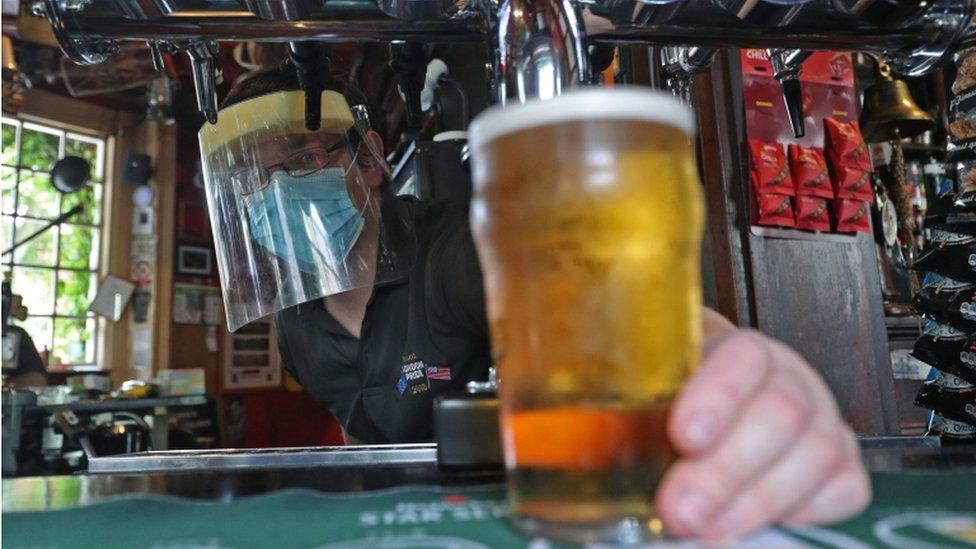
- Published18 June 2020
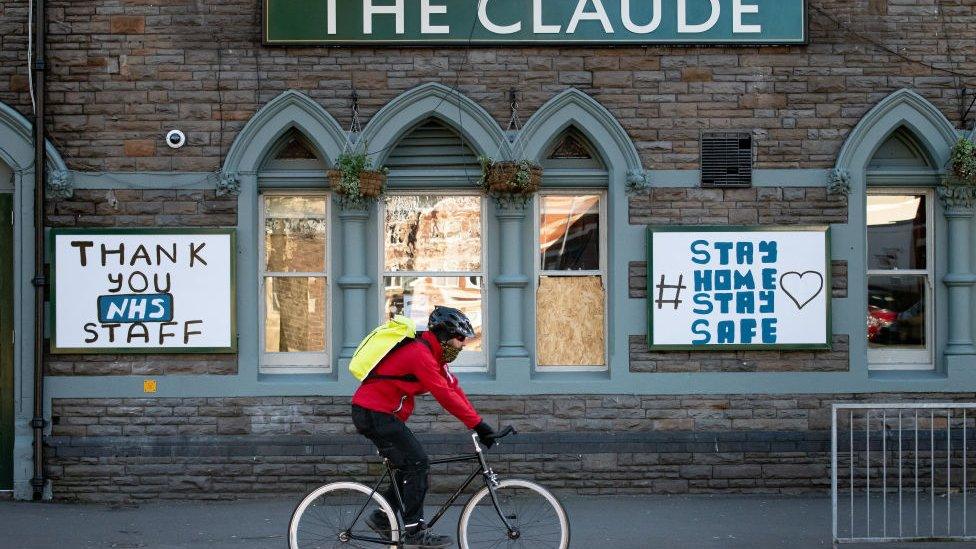
- Published14 July 2021
